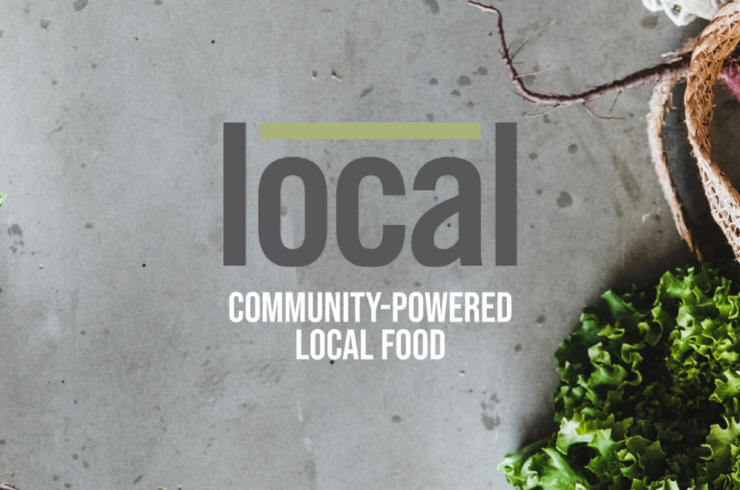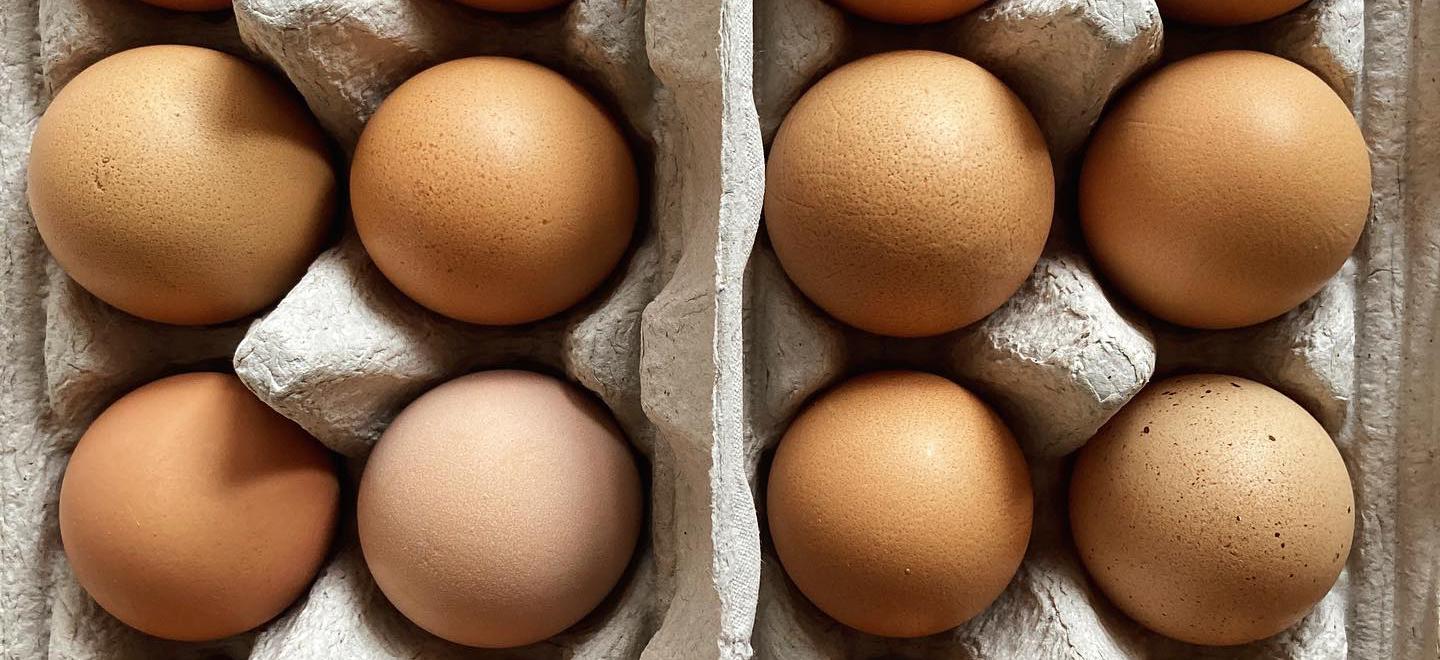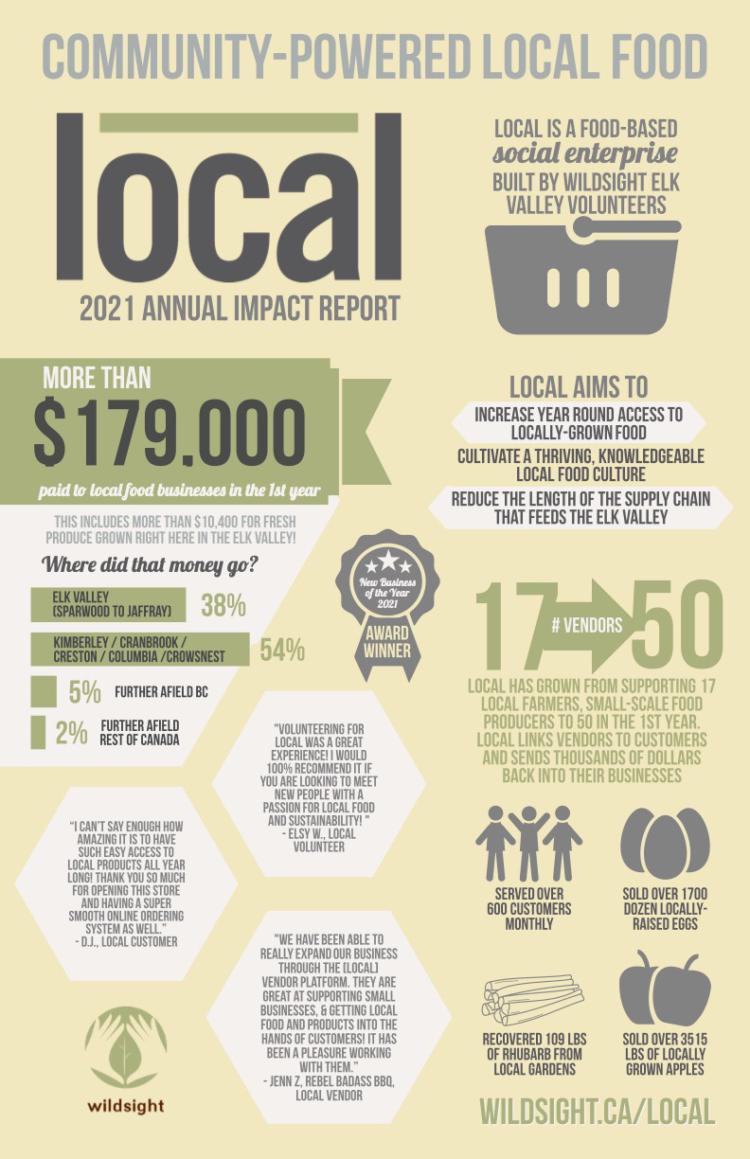The eggs should be here any minute. Potatoes and apples are arriving later today. Perched in the backroom with one ear bent to the phone and the other to the door, Jennifer Lennon juggles the day-to-day operations while squeezing in a chat about the first year for Fernie’s own Local Store.
Jennifer moved to Fernie in fall 2020 and jumped right into volunteering with harvest events and online ordering. She helped build shelves and paint walls in the newly minted physical space that opened in December, quickly taking over the coordinator position early in the new year.
As the only full-time staff member of the store, Jennifer ensures producers are producing, buyers are buying, deliveries are being delivered, volunteers are volunteering, and the lights are lighting up the fruits and veggies, frozen meats and meals, jams, honey and more in the downtown Fernie operation that brings local producers and buyers together.
A social enterprise developed by Wildsight Elk Valley, Local is the first store of its kind in the region. A unique blend of supporting producers, celebrating local food, and bringing the supply chain closer to the consumer, this store aimed high and successfully hit the target in its inaugural year.
Shop local
One year in, there have been a lot of lessons learned by Wildsight Elk Valley, by the vendors, and especially by the shoppers. Store employees and volunteers look to educate the public about what it actually looks like to buy local. For example, spring onions aren’t in store all year, nor are tomatoes.
“It’s hyper-seasonal. What we have in the summer one week to the next is completely different,” Jennifer explains. “It’s more like shopping at a farmers’ market: you show up, you see what’s good, and plan your meals around that. It’s a delicious way to connect with the place where you live!”
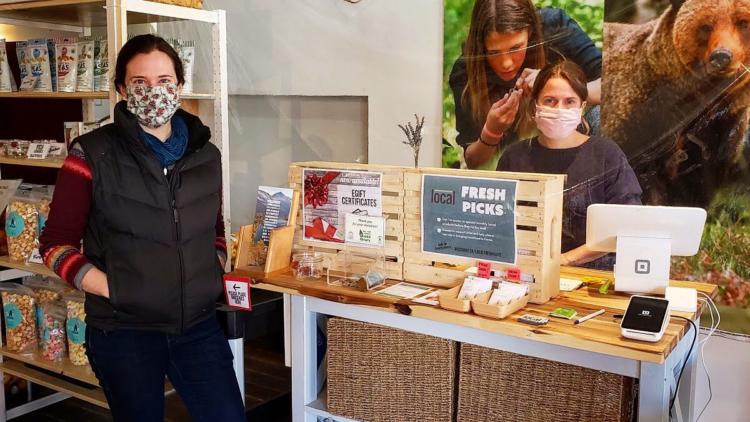
The community has embraced Local, with many of its more than 600 monthly customers becoming regular shoppers.
“Our very favourite thing people love to tell us is ‘I come here first. I come here and I get my veggies, eggs and meats for the week, and if I can’t get something here, I go fill in the gaps elsewhere’,” shares Jennifer. “We love hearing that!”
This kind of comment is exactly the kind of fuel that fires the hardworking staff and volunteers here.
“Shop local first,” urges Jennifer. “You can get your basics from your neighbours essentially; you’re keeping money in the community. It’s fresher, it tastes better, and the environmental impacts are lower.”
While winter has frozen the ground that grows so fertile here in the summer, Local’s shelves, fridges and freezer are still fully stocked. You’ll find plenty of high-quality meats; premade meals like pierogies, butter chicken and meat pies; you can find preserves, jams, and canned goods too. Local has grown from working with 17 local farmers and small-scale food producers to 50 in its first year. With a business model that puts any profits back into the pockets of producers, the store has paid more than $179,000 to local food businesses over the first year of operation.
One of Local’s primary objectives is to increase the local food available in the Elk Valley. A shocking 99 per cent of Fernie’s commercially available food is imported. With one road in, one road out, it makes the region especially vulnerable to supply shortages. But Local’s plan proved its worth during the recent flooding that hit the Fraser Valley. While much of B.C. feared for food security, Local’s supply was largely unaffected (some local road washouts delayed a few deliveries and several local farms experienced some flooding and loss. For example, eggs at Local come from family farms in Sparwood and Cranbrook, not an industrial operation from across the province.
“We can get hit with natural disasters like anyone else can. But if we can disperse our food production, it makes us so much less vulnerable to disruptions,” says Jennifer. “The more centralized the system is, the more vulnerable it is.”
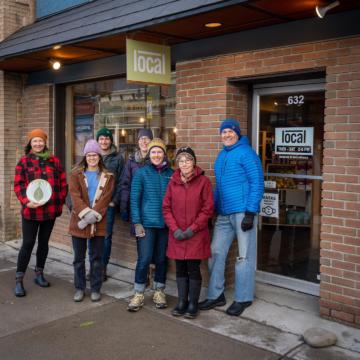
Seeing success
One of the largest contributors to Local’s success has been the ‘Fresh Picks Club’. A group of community members passionate about supporting local food, Fresh Picks members commit to monthly donations that help guarantee a regular flow of money to the project.
“Fresh Picks Club members’ financial support was a key factor in making the store’s launch possible, and it is helping sustain us,” reports Jennifer. “Many Fresh Picks Club members live in Fernie, and we also have members from as far away as Calgary. They all like what we’re doing and they want to see us continue. I want to say how grateful we are for all of their support.”
In its first year, Local has sold more than 20,400 eggs, 2,515 lbs of locally-grown apples, and recovered 109 lbs of rhubarb from local gardens. While chatting, the week’s shipment of eggs arrives: 60 dozen, which Jennifer knows by experience will likely sell out by week’s end.
After a year of trial and error, of carefully monitoring what comes in and what comes out, and a year of listening to farmers, customers and producers, the Local store operators now have a good idea of what is available locally in different seasons, and what to stock for customer’s preferences. It’s a fine balance, but one they seem to be striking well. The store even won the Chamber of Commerce’s New Business of the Year award, reinforcing that this little store is doing some big things.
“We’re in a good place,” says Jennifer. “We’re figuring out what needs to be done and we’re getting there.”
Dawn Deydey, longtime Wildsight program coordinator, Elk Valley Wildsight volunteer, and local food enthusiast spearheading this new initiative, reflects on the year, and is excited for what’s to come.
“Our local farmers and small-scale producers are thriving, we have a great crew of volunteers committed to supporting the store and our customer-base continues to grow,” sums up Dawn.
